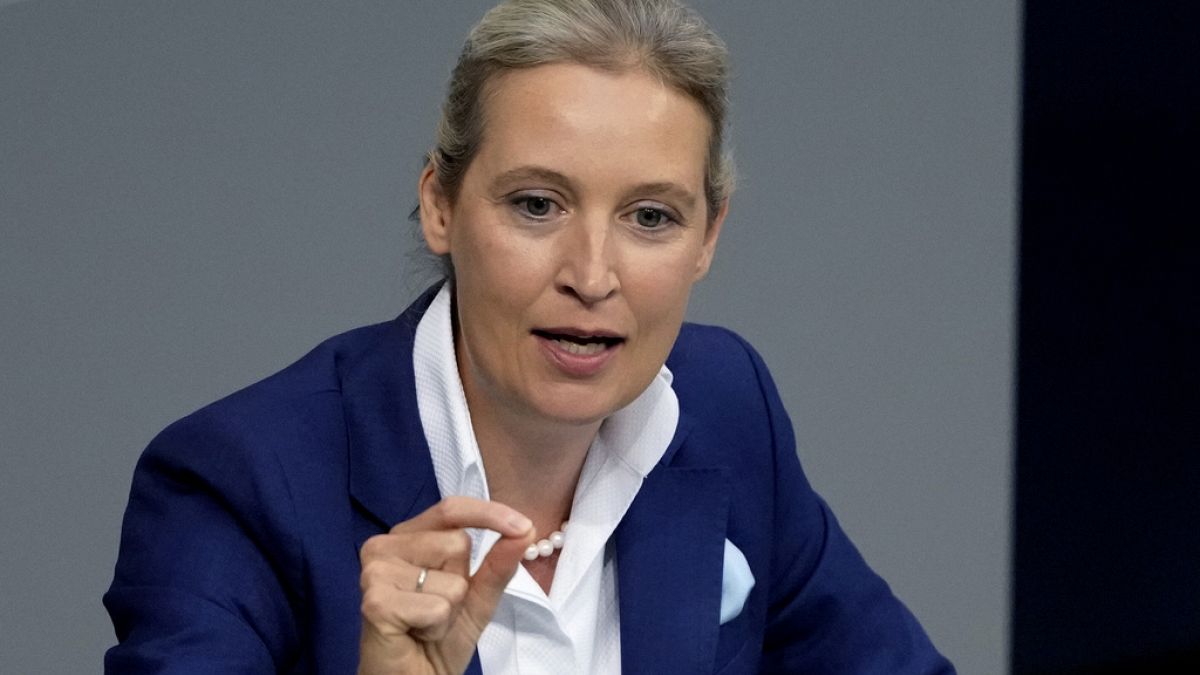Weidel promises to revive the economy, reduce migration and roll back climate policies.
Alice Weidel has now officially been nominated as the first ever chancellor candidate of the German far-right party Alternative for Germany (AfD) in the upcoming election.
However, she is unlikely to be able to take the chancellery in practice as other parties have said they will refuse to work with the AfD.
Nevertheless, the political movement AfD, which was founded in 2013, has been receiving increasingly strong approval rates and is currently the second-strongest party in the country after the centre-right Christian Democrats.
The party has been polling between 18% and 19% in nationwide surveys.
“We want to bring Germany forward again. We want to be at the top again, worldwide,” Weidel said as she accepted the nomination.
The 45-year-old economist said she would restore the country’s ailing economy, reverse its climate-friendly energy transition and severely reduce migration.
Germany is going through one of its worst crises according, to Weidel: “We have 20 years of grand coalitiona and “traffic light” coalitions behind us, and we have crashed. Our country is no longer what it used to be. We were a country with the safest and cheapest energy supply. We were a prosperous country that our grandparents and parents had built up……we are no longer there.”
Weidel believes irregular migration to Germany is “the source of all evil”.
Snap election edges closer
The party’s fierce anti-migration stance and revelations about other German far-right movements’ plans to deport millions of immigrants and their descendants if they come to power in Germany led to weeks-long protests in the country last winter.
Fast forward a few months, the AfD won a state election in Thuringia for the first time in September of this year.
Current Chancellor Scholz, who leads the country with a minority government, plans to hold a no-confidence vote in parliament on 16 December. If he loses the vote, as is widely expected, it would pave the way for an early election on 23 February next year.
The other candidates expected to run for the chancellery are the incumbent Scholz, with the center-left Social Democrats; Friedrich Merz, with the Christian Democrats; and Robert Habeck, with the Greens.
AfD under investigation
The AFD, meanwhile, remains under investigation by Germany’s domestic intelligence agency, the Federal Office for the Protection of the Constitution (BfV). It has been classified by security services as a right-wing extremist group, though the agency has said it will decide on whethe to re-evaluate its status before the end of the year.
Delegates at the AfD national party conference in Riesa will now have to confirm Weidel’s candidacy in mid-January 2025 before it is fully confirmed, though that is now considered a formality.
In previous federal elections, the AfD has refrained from putting forward its own candidate for chancellor. However, Weidel has twice been part of a candidate duo for federal elections: once with Alexander Gauland in 2017 and with co-party leader Tino Chrupalla in 2021.

